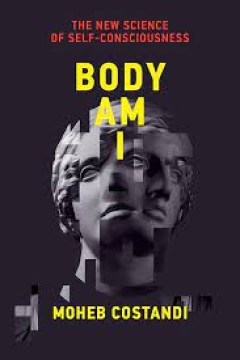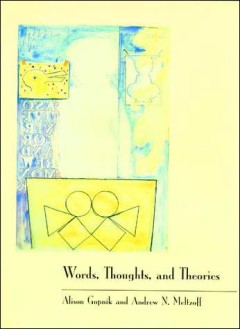Filter by

Cognitive pluralism
An argument that we understand the world through many special-purpose mental models of different content domains, and an exploration of the philosophical implications. Philosophers have traditionally assumed that the basic units of knowledge and understanding are concepts, beliefs, and argumentative inferences. In Cognitive Pluralism, Steven Horst proposes that another sort of unit--a mental mo…
- Edition
- -
- ISBN/ISSN
- 0262333627
- Collation
- 1 online resource (xii, 360 pages) :illustrations, maps
- Series Title
- -
- Call Number
- -

Production system models of learning and development.
Cognitive psychologists have found the production systems class of computer simulation models to be one of the most direct ways to cast complex theories of human intelligence. There have been many scattered studies on production systems since they were first proposed as computational models of human problem-solving behavior by Allen Newell some twenty years ago, but this is the first book to fo…
- Edition
- -
- ISBN/ISSN
- 0262111144
- Collation
- 1 online resource.
- Series Title
- -
- Call Number
- -

Memory and Movies: What Films Can Teach Us about Memory
"In the movie Slumdog Millionaire, the childhood memories of a young game show contestant trigger his correct answers. In Memento, the amnesiac hero uses tattoos as memory aids. In Away from Her, an older woman suffering from dementia no longer remembers who her husband is. These are compelling films that tell affecting stories about the human condition. But what can these movies teach us about…
- Edition
- -
- ISBN/ISSN
- 9780262330657
- Collation
- 1 online resource (xxv, 291 pages)
- Series Title
- -
- Call Number
- -

White Queen psychology and other essays for Alice
A Bradford book.""This collection of essays serves both as an introduction to Ruth Millikan's much-discussed volume Language, Thought, and Other Biological Categories and as an extension and application of Millikan's central themes, especially in the philosophy of psychology.The title essay discusses meaning rationalism and argues that rationality is not in the head, indeed, that there is no le…
- Edition
- 1st MIT Press pbk. ed.
- ISBN/ISSN
- 9780262279901
- Collation
- 1 online resource (xii, 387 pages).
- Series Title
- -
- Call Number
- -

Body Am I: The New Science of Self-Consciousness
"Costandi explains the neuroscience behind how we view our selves and our bodies, drawing from neurological studies on our sense of agency and free will, the neural correlates of mental representations, mirror neurons, and how the brain perceives timing and sensory consequences. He explores case studies of amputees with phantom limb syndrome, people with Body Integrity Identity Disorder (who ha…
- Edition
- -
- ISBN/ISSN
- 9780262368711
- Collation
- 1 online resource
- Series Title
- -
- Call Number
- -

Words, thoughts, and theories
"A Bradford book."OCLC-licensed vendor bibliographic record.
- Edition
- -
- ISBN/ISSN
- 9780262274098
- Collation
- 1 online resource (xvi, 268 pages).
- Series Title
- -
- Call Number
- -

The hidden powers of ritual :the journey of a lifetime
"An overview of the development and importance of ritual in every day life, written by a leading cognitive anthropologist"--OCLC-licensed vendor bibliographic record.
- Edition
- -
- ISBN/ISSN
- 9780262376549
- Collation
- 1 online resource
- Series Title
- -
- Call Number
- -

The entangled brain :how perception, cognition, and emotion are woven together
"A general overview of the systems neuroscience approach written by a leading figure in the field"--OCLC-licensed vendor bibliographic record.
- Edition
- -
- ISBN/ISSN
- 9780262372107
- Collation
- 1 online resource
- Series Title
- -
- Call Number
- -

Snapshots of the mind
"A collection of short, accessible essays by one of the leading practitioners of Naturalistic Decision Making"--OCLC-licensed vendor bibliographic record.
- Edition
- -
- ISBN/ISSN
- 0262371510
- Collation
- 1 online resource.
- Series Title
- -
- Call Number
- -

The secret life of literature
"A leading practitioner of 'cognitive aesthetics' shows how narrative literature works its magic on readers by drawing surreptitiously on patterns developed over four thousand years ago"--OCLC-licensed vendor bibliographic record.
- Edition
- -
- ISBN/ISSN
- 0262367653
- Collation
- 1 online resource.
- Series Title
- -
- Call Number
- -
 Computer Science, Information & General Works
Computer Science, Information & General Works  Philosophy & Psychology
Philosophy & Psychology  Religion
Religion  Social Sciences
Social Sciences  Language
Language  Pure Science
Pure Science  Applied Sciences
Applied Sciences  Art & Recreation
Art & Recreation  Literature
Literature  History & Geography
History & Geography